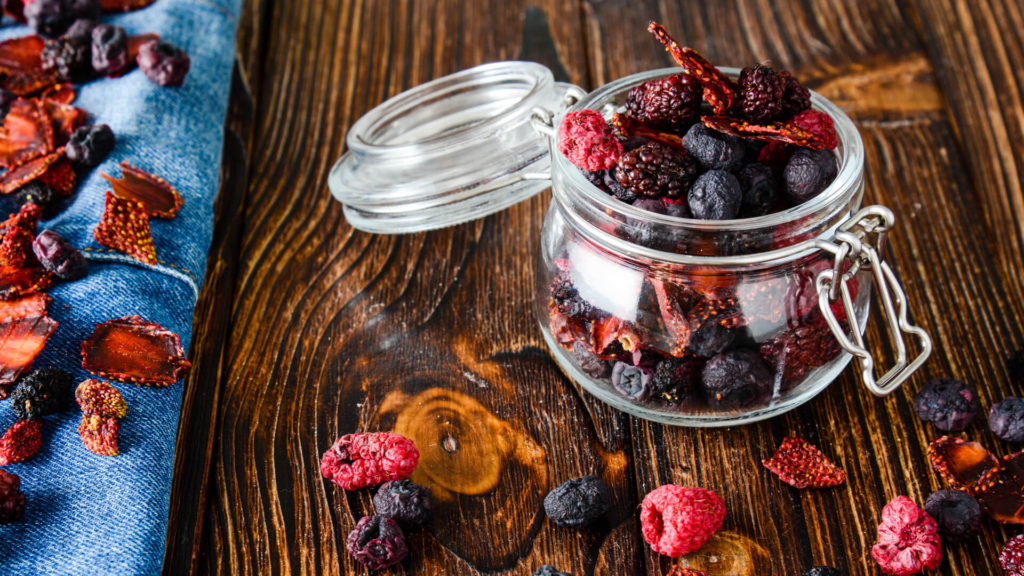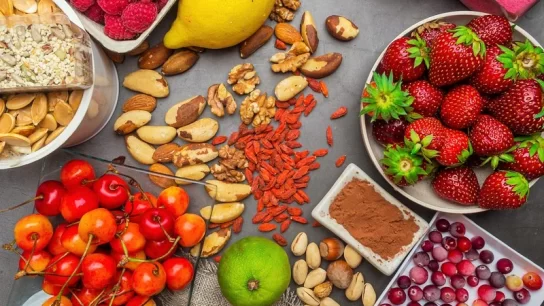One of the latest and most interesting trends in natural and healthy eating is fermented superfoods.
Freeze-dried fermented superfoods offer in a single product the properties of a superfood or a medicinal plant enhanced through symbiotic fermentation. The result is a dry powder that can be dissolved in water or smoothies, or added to salads and other preparations, explains Tarek Daroukh, co-founder of Organic Superfoods, a pioneer of fermented superfoods with organic certification in Spain.

WHAT ARE FERMENTED SUPERFOODS?
Any food or medicinal plant that contains carbohydrates or fiber in its composition can be fermented, such as vegetables, algae, cereals, legumes, nuts and seeds, herbs, and fruits.
Lacto-fermented foods are traditional ones such as sauerkraut or dairy products such as yogurt; These contain probiotics and live bacteria.
Symbiotically fermented superfoods are prebiotics, probiotics, and postbiotics. They are mixtures of fungi, yeasts, and bacterial strains with the superfood or medicinal plant, such as ashwagandha or turmeric.
You can also ferment medicinal plants such as lemon balm
The new trend consists of choosing foods very dense in micronutrients, antioxidant phytochemicals, or other healthy properties for fermentation.
HOW IS FERMENTATION CARRIED OUT?
The process is simple: the food or plant is crushed and fermented with a mixture of microorganisms that contains lactic and acetic bacteria, fungi, and yeasts.
Some manufacturers use a mixture composed of different microorganisms. Organic Superfoods use, for example, microorganisms from kefir granules and kombucha scoobies, such as lactobacilli, lactococci, acetobacteria, gluconobacteria, and fungi and yeasts such as Sascharomyces, Kluyveromyces marxianus or Zygosaccharomyces kombuchaensis.
When it has fermented, the product undergoes a freeze-drying process (it is frozen and sublimated so that the product retains its properties for a long time) so that the microorganisms do not die, but the fermentation will not continue due to the absence of humidity. This results in a food with a high proportion of nutrients that is also probiotic, as it contains viable microorganisms. Additionally, as Daroukh says, it is prebiotic (stimulates the growth of beneficial digestive bacteria) and symbiotic (microorganisms combine their effects and work with intestinal bacteria).
WHAT BENEFITS DOES THE FERMENTATION OF SUPERFOODS PRODUCE?
Daroukh, who markets fermented turmeric and ashwagandha under the Organic Superfoods brand and will launch new products in the coming months, explains that the benefits are based on the properties of the original food or plant, and on the symbiotic interaction of microorganisms, an action that continues in the human digestive system.
GREATER BIOAVAILABILITY OF NUTRIENTS
When bacteria and yeast ferment a food or medicinal plant, they break it down into simpler nutrients and elements, so that later, when consumed by people, they can be absorbed more effectively during digestion.
In addition, probiotic fermented foods provide enzymes that promote digestion and assimilation. That is, fermentation increases the bioavailability of nutrients such as amino acids, fatty acids, vitamins, minerals, or phytochemicals of the superfood.
MORE NUTRIENTS
Not only does bioavailability increase, but fermentation even multiplies the amount of some nutrients. B vitamins are usually increased, such as folic acid, riboflavin, niacin, thiamine, and biotin, as well as vitamin K2.
ENRICHES THE DIGESTIVE MICROBIOTA
The important role that the community of digestive bacteria (microbiota) plays in our general health is known. A healthy microbiota prevents infections, reduces inflammation, promotes the assimilation of nutrients, and collaborates with the immune, nervous, and endocrine systems in countless processes on which health depends.
These properties explain why probiotic fermented foods have been linked to some health benefits. They stand out among them:
Mental health: Some studies have linked the probiotic strains Lactobacillus helveticus and Bifidobacterium longum with a reduction in symptoms of anxiety and depression. Both probiotics are found in many fermented foods.
Weight loss: Some research has found links between certain strains of probiotics, including Lactobacillus rhamnosus and Lactobacillus gasseri, with weight loss and decreased abdominal fat.
Heart health: Fermented foods have been associated with a lower risk of heart disease. Probiotics can modestly lower blood pressure and help lower total and “bad” LDL cholesterol.
FERMENTED MEDICINAL PLANTS
Humans have always known how to benefit from the properties of medicinal plants. Medicinal herbs and plants can be found in the form of tablets, capsules, powders, infusions, or extracts. In addition, they can be processed and taken in the form of syrup, essential oils, ointment, balm, etc.
Medicinal plants can also be fermented to enhance their effect on the body. In many cases, fermentation improves the therapeutic efficacy of herbal medicines, as explained in a study published by the scientific journal Food Research International.






